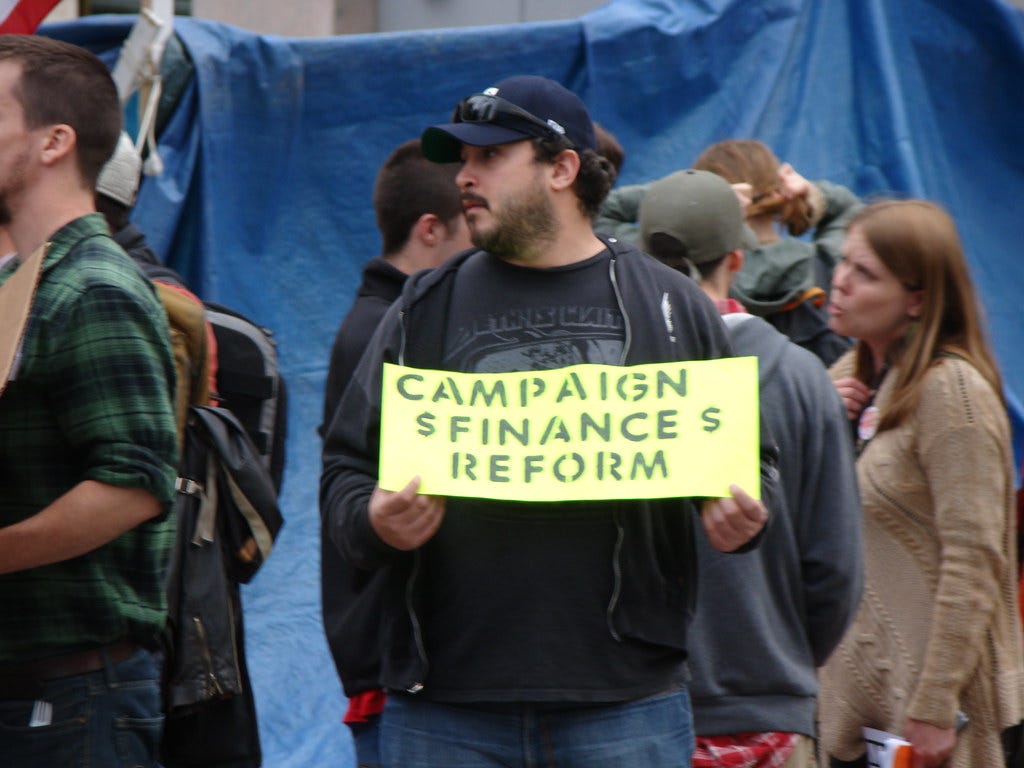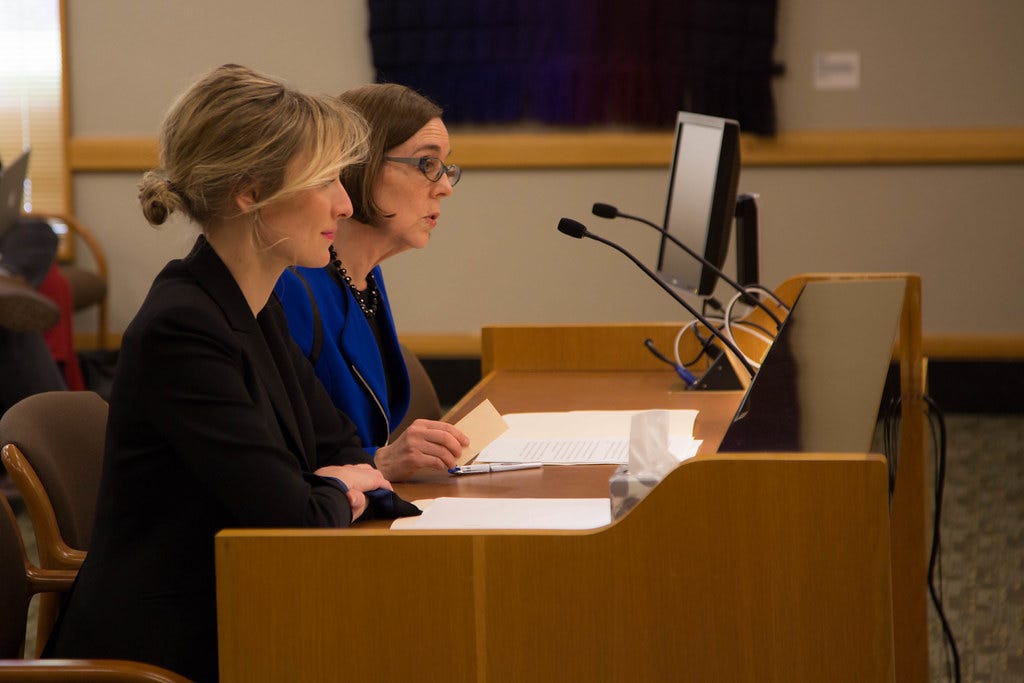Via the Bend Bulletin: Oregon needs campaign finance reform
Life, liberty and property. All are essential. All are protected by the Constitution. All are threatened by Oregon’s lack of limits on campaign donations.
Kevin Frazier remotely attends the UC Berkeley School of Law from Bend and edits The Oregon Way. This piece first appeared here in The Bend Bulletin. Please consider subscribing to your local newspaper during these tumultuous times.
********************************************
The Importance of Campaign Finance Reform

"'Campaign Finance Reform'" by Massachusetts Cop Block is licensed under CC BY-SA 2.0
Life, liberty and property. All are essential. All are protected by the Constitution. All are threatened by Oregon’s lack of limits on campaign donations. It doesn’t take a legal education to see that Oregonians deserve a system that protects their constitutional rights. However, a handy test that even first-year law students learn helps show why campaign finance reform is more than just politically necessary but perhaps legally mandatory.
First, it’s crucial to show how campaign finance reform relates to protecting life, liberty and property. That relationship becomes clear by looking at how a lack of donation limits can directly impact election results. Consider that in the 2018 gubernatorial election one donor basically bought the Republican primary and, on the other side, a few organizations provided the preponderance of financial support. Whether Phil Knight wanted to winnow the Republican field or large Democratic donors sought to steer the election is irrelevant, what matters is that the process they used to impact the election was and is unavailable to typical Oregonians. But are these mega-donors a threat to life, liberty and property?
Yes.

"Campaign Finance Reform Testimony" by oregongovbrown is licensed under CC BY-NC 2.0
The Values Threatened by Dark Money
There may have been a time when who you elected did not have much of an impact on those core constitutional features, but that time has passed. An election can change how the government defines “life,” what’s viewed as a right or merely a privilege and what and who gets taxed. With the relationship between campaign donations, elections and governance made clear, it’s obvious that denying adequate due process in elections may deprive voters of constitutional promises.
The handy test that first-year students learn is suited for this sort of situation — it’s used to determine if new processes are required to correct for an unconstitutional denial of life, liberty or property. The first step is to weigh the public’s interest in improved processes; that interest is incredibly high. As the government steps into more and more policy areas, voters have more and more of a need to actually have a voice in elections. Just this last legislative session, Oregon officials voted on huge taxes, sweeping climate change proposals and big shifts in family leave. It is evident that the life, liberty and property of typical Oregonians is at stake, yet only the financially atypical (the wealthiest) have the advantage of exploiting Oregon’s lack of limits.
The test next weighs the government’s interest in adopting new processes by considering their administrative and financial costs. In the case of adopting campaign donation limits, the government’s interest is low. The vast majority of other states have managed to cost-effectively manage a system that does not so explicitly cater to big money; Oregon can do the same.
The final element considers how new processes might reduce the risk of an erroneous decision, which would be the election of an unrepresentative official. The current risk is unacceptably high. If just a few donors can change the outcome of a race, then Oregonians are in need of some measures to make results more reflective of the typical voters. Campaign finance reform can help the state get there by giving more diverse candidates that are truly connected to Oregon communities a better shot of electoral success.
From these three factors the outcome is clear: The public’s interest and potential reduction in wrongful results predominate the government’s valid, but small, stake in managing these reforms.
I’m not a lawyer (though I will be soon), and my professors would challenge some of my assumptions (as they should), but even if I’m stretching the limits of a school lecture the upshot of the analysis holds true: Typical Oregonians are being denied the chance to shape elections that have increasingly large ramifications. Oregonians deserve campaign finance reform.
*****
Keep the conversation going via Facebook (https://www.facebook.com/oregonway) and Twitter (@the_oregon_way)



